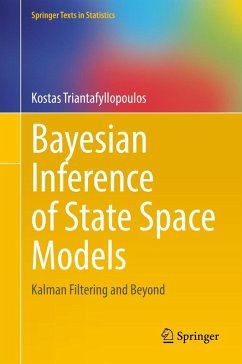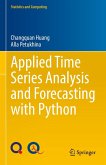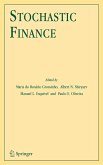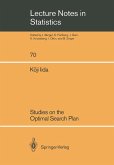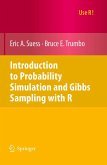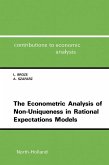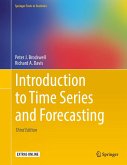Bayesian Inference of State Space Models: Kalman Filtering and Beyond offers a comprehensive introduction to Bayesian estimation and forecasting for state space models. The celebrated Kalman filter, with its numerous extensions, takes centre stage in the book. Univariate and multivariate models, linear Gaussian, non-linear and non-Gaussian models are discussed with applications to signal processing, environmetrics, economics and systems engineering.
Over the past years there has been a growing literature on Bayesian inference of state space models, focusing on multivariate models as well as on non-linear and non-Gaussian models. The availability of time series data in many fields of science and industry on the one hand, and the development of low-cost computational capabilities on the other, have resulted in a wealth of statistical methods aimed at parameter estimation and forecasting. This book brings together many of these methods, presenting an accessible and comprehensive introduction to state space models. A number of data sets from different disciplines are used to illustrate the methods and show how they are applied in practice. The R package BTSA, created for the book, includes many of the algorithms and examples presented. The book is essentially self-contained and includes a chapter summarising the prerequisites in undergraduate linear algebra, probability and statistics.
An up-to-date and complete account of state space methods, illustrated by real-life data sets and R code, this textbook will appeal to a wide range of students and scientists, notably in the disciplines of statistics, systems engineering, signal processing, data science, finance and econometrics. With numerous exercises in each chapter, and prerequisite knowledge conveniently recalled, it is suitable for upper undergraduate and graduate courses.
Over the past years there has been a growing literature on Bayesian inference of state space models, focusing on multivariate models as well as on non-linear and non-Gaussian models. The availability of time series data in many fields of science and industry on the one hand, and the development of low-cost computational capabilities on the other, have resulted in a wealth of statistical methods aimed at parameter estimation and forecasting. This book brings together many of these methods, presenting an accessible and comprehensive introduction to state space models. A number of data sets from different disciplines are used to illustrate the methods and show how they are applied in practice. The R package BTSA, created for the book, includes many of the algorithms and examples presented. The book is essentially self-contained and includes a chapter summarising the prerequisites in undergraduate linear algebra, probability and statistics.
An up-to-date and complete account of state space methods, illustrated by real-life data sets and R code, this textbook will appeal to a wide range of students and scientists, notably in the disciplines of statistics, systems engineering, signal processing, data science, finance and econometrics. With numerous exercises in each chapter, and prerequisite knowledge conveniently recalled, it is suitable for upper undergraduate and graduate courses.
Dieser Download kann aus rechtlichen Gründen nur mit Rechnungsadresse in A, B, BG, CY, CZ, D, DK, EW, E, FIN, F, GR, HR, H, IRL, I, LT, L, LR, M, NL, PL, P, R, S, SLO, SK ausgeliefert werden.
"The idea of this book is to bring together the mentioned models and make them available to a broad audience. The book is written from a statistician's perspective. It uses a number of data sets from a wide range of disciplines. ... It is aimed at students at the higher end of undergraduate or graduate level but also at scientists for self-study." (Wolfgang Näther, zbMATH 1480.62003, 2022)

